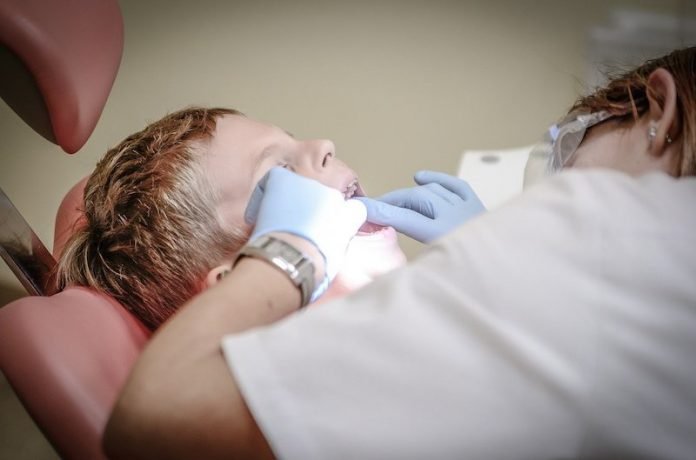
You might know that yearly dental exams are recommended to keep your teeth and gums healthy. But did you know these routine visits can help identify more serious health concerns like oral cancer?
An expert with The University of Texas Health Science Center at Houston (UTHealth) School of Dentistry shares more on the symptoms, risk factors, and possible prevention of oral cancer.
“Oral cancer is often detected by examining the inside of the mouth and lips during a routine visit to the dentist,” said Kalu Ogbureke, BDS at UTHealth School of Dentistry.
“It can be caught at the precancer stage when we are able to do surgery to remove it.”
Oral cancer ranks sixth in the overall incidence for the 10 most common cancer sites worldwide and third in developing countries, according to Ogbureke.
Oral cancers present as a growth or sore in the mouth that fails to heal. It is commonly found in the tongue, gums, cheek, floor of the mouth, and tonsils. If found and removed in the early stages, the survival rate of oral cancer is high.
Common symptoms include:
Persistent mouth ulcer that may become painful at a later stage
A white or red patch on the gums, tongue, tonsil, or lining of the mouth
A sore throat or persistent feeling that something is caught in the throat
Pain, tenderness, or numbness in mouth or lips
Difficulty chewing, swallowing, speaking, or moving your tongue or jaw
Voice changes
Unexplained weight loss
If you are used to getting sores in the mouth, Ogbureke says not to worry – there are differences between cold sores and cancer sores.
“Most common sores such as cold sores are often painful at the onset in comparison to most oral cancers, which tend to present with little to no pain at the initial stages.
Also, there are subtle differences in character of the edges of the common sores and oral cancer sores that the trained eyes of the dentist will be able to quickly identify.
Ultimately, a biopsy remains the gold standard and is necessary to confirm the diagnosis,” he said.
The risk of oral cancer varies from person to person, but Ogbureke says these factors are known to increase your risk of developing oral cancer:
Smoking
Using tobacco products
Excessive consumption of alcohol
Excessive sun exposure (for lip cancers),especially at a young age
Human papillomavirus (HPV)
“Cancers of the mouth are among the most preventable types of cancers,” he said. “The key to successful treatment of oral cancers is early diagnosis, so I suggest scheduling your yearly dental exam or seeing a dentist if you experience any of the common symptoms.
Additionally, with respect to HPV-related oral cancers, I encourage parents of early teenage children to get their HPV vaccine. These measures remain the best prevention for oral cancers.”
If you care about cancer, please read studies about this heartburn drug linked to higher risk of pancreatic cancer and findings of common arthritis drug linked to higher skin cancer risk.
For more information about cancer treatment and prevention, please see recent studies about common Mexican plant may stop cancer growth and results showing that common drugs for inflammation, diabetes, alcoholism may help kill cancer.



